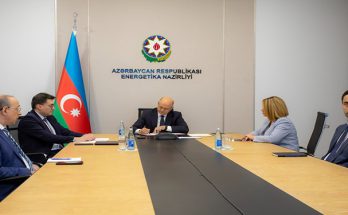 African Trade and Investment Development Insurance (ATIDI), a pan-African insurer with its headquarters in Nairobi, has given Globeleq’s 35 MW Menengai Geothermal Power Project in Kenya political risk insurance coverage.
African Trade and Investment Development Insurance (ATIDI), a pan-African insurer with its headquarters in Nairobi, has given Globeleq’s 35 MW Menengai Geothermal Power Project in Kenya political risk insurance coverage.
The Regional Liquidity help Facility (RLSF), a collaborative initiative by ATIDI, KfW Development Bank, and the Norwegian Agency for Development Cooperation (NORAD), will provide this help. It benefits Independent Power Producers (IPPs) of renewable energy.
The project, which is worth USD 117 million, is the first in Kenya to be evaluated for RLSF cover. Funding for the project comes from the Finish Fund for Industrial Cooperation (Finnfund), the Eastern and Southern African Development Bank (TDB), the African Development Bank (AfDB), and equity from Globeleq, the project owners.
The national utility, Kenya Power & Lighting Company (KPLC), and the government-owned Geothermal Development Corporation (GDC), which was established to hasten the development of geothermal resources in Kenya, will have their payment default risk covered by the proposed RLSF policy.
Under the provisions of a 25-year power implementation and steam supply deal, GDC will supply steam to the project; for the same period, a power purchase agreement will sell the electricity generated exclusively to KPLC. An additional benefit to the Project Company is a letter of support from the Kenyan government.
The CEO of ATIDI, Manuel Moses, commented on the agreement, saying, “We are excited to work with Globeleq, KPLC, GDC, and the Kenyan Government on this important project. “This partnership demonstrates our commitment to renewable energy and sustainable development in Kenya and the surrounding area. We are honoured to assist Kenya in its energy transition.
Globeleq’s interim CEO, Jonathan Hoffman, congratulated ATIDI on the historic agreement and promised more cooperation. To engage in significant renewable projects like Menengai, businesses that want payment guarantee rely heavily on RLSF. By providing essential liquidity protection against payment defaults, this ground-breaking solution from ATIDI, KfW, and NORAD allows investors to make confident investments.
Kenya signed the RLSF MoU to join the ranks of Benin, Burundi, Cote d’Ivoire, Ghana, Madagascar, Malawi, Togo, Uganda, and Zambia as the eleventh member state of ATIDI. The goal of the RLSF MoU is to promote cooperation in the identification, development, and implementation of renewable energy projects between ATIDI and its member nations. The RLSF MoU also aims to strengthen each member state’s power generation and transmission capability by utilizing its natural resources to produce clean, sustainable energy.
Through the approval of RLSF policies, seven renewable energy projects in Burundi, Malawi, Uganda, and now Kenya have been supported. This has allowed for a total financing of USD 323.7 million and an installed capacity for electricity generation of 171.3 MW, thanks to USD 20.6 million in cover under the RLSF portfolio, resulting in an impressive leverage or mobilization ratio of 16 times.
Geothermal, wind, and hydropower are just a few of the many renewable resources that help Kenya’s power sector thrive. By 2030, the government wants to raise the amount of power produced from 3,078 MW in 2023 to 5,000 MW. This expansion will heavily rely on geothermal initiatives.



